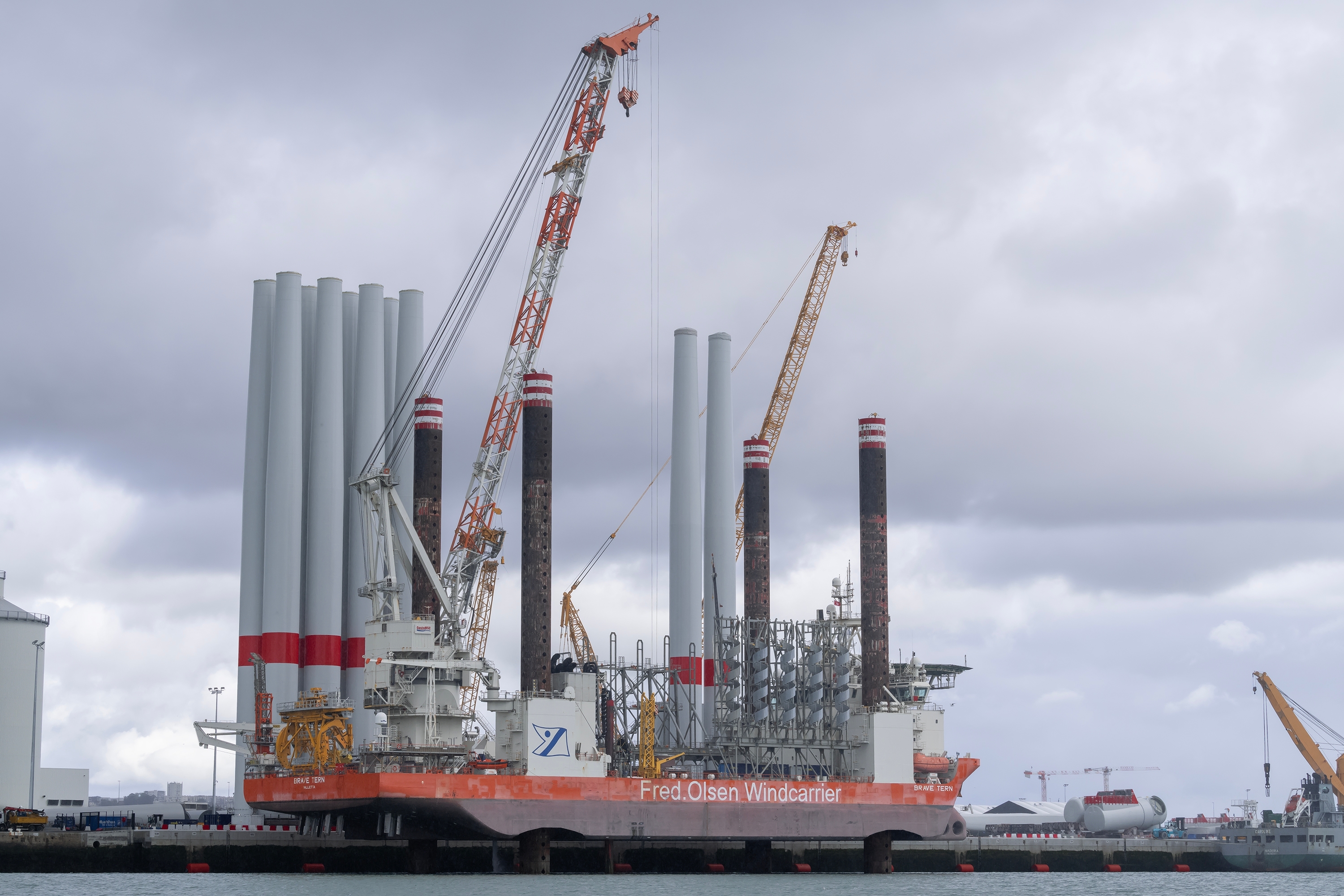France risks missing offshore wind target

Key Takeaways:
Unless it speeds up installs, France might only have 3 gigawatts of operational offshore wind by 2032, far below the government’s target of 18 gigawatts by 2035.
French policy support for nuclear power has diverted financial resources away from renewables, potentially jeopardising the country’s energy security.
Streamlined licensing and a more favourable investment climate will help accelerate France’s offshore wind deployment.
Without accelerated installs, offshore wind will play a limited role in replacing France’s ageing nuclear plants.
7 April 2025 (IEEFA) | France will fail to meet its offshore wind installation target unless it streamlines permitting and creates a more favourable investment climate, according to new research from the Institute for Energy Economics and Financial Analysis (IEEFA).
Despite carrying out numerous tenders since 2011, France has just 1.5 gigawatts (GW) of operational offshore wind. The technology provides 1% of the country’s electricity, far below its Northwest European neighbours.
The study finds that unless it accelerates deployment, France might only have 3 GW of operational offshore wind by 2032, leaving it off track to achieve the government’s target of 18 GW by 2035. This means the technology would play a limited role in replacing nuclear reactors due to be decommissioned.
“A combination of complex permitting, legal challenges and focus on nuclear power have held back offshore wind development in France,” said Jonathan Bruegel, an IEEFA power sector analyst and author of the research. “There is a lack of political and financial support for offshore wind in France, which has struggled to provide the same level of certainty for investors as many other European countries.
“Action must be taken to turn the tide on French offshore wind development so that the technology can effectively strengthen the country’s energy security and help replace its ageing fleet of nuclear power plants, most of which will reach the end of their planned operational lifetimes by 2030.”
The research calls on France to urgently streamline offshore wind licensing and shorten the timeframe for legal challenges to projects awarded in tenders.
The report finds that policy support for nuclear power has diverted financial resources away from renewables, potentially jeopardising the country’s energy security. To prevent nuclear power from hindering offshore wind development, IEEFA recommends the following:
- Develop a nuclear phase-down plan with offshore wind as a pillar. When ageing nuclear plants are phased out, the government should create a structured transition plan that prioritises offshore wind and other renewables.
- Invest in grid adaptation. France’s transmission system operator should develop a modernised, smarter and more flexible grid that can handle intermittent renewables.
- Reform market regulations. Nuclear should cease to have priority access to the grid and should not be granted a preferential feed-in tariff. Renewables should be made eligible for capacity mechanism payments.
- Diversify energy investments. Offshore wind projects should be made more attractive to investors through stable policies and incentives. Public investment should be redirected to offshore wind and renewables infrastructure.
“Unlocking the potential of France’s offshore wind resources will help the country succeed in its transition from a nuclear-dominated power mix to a more balanced system with significant levels of renewables,” said Bruegel.
Read the briefing note: https://ieefa.org/resources/unlocking-frances-offshore-wind-potential
Press contact
Jules Scully | [email protected]












